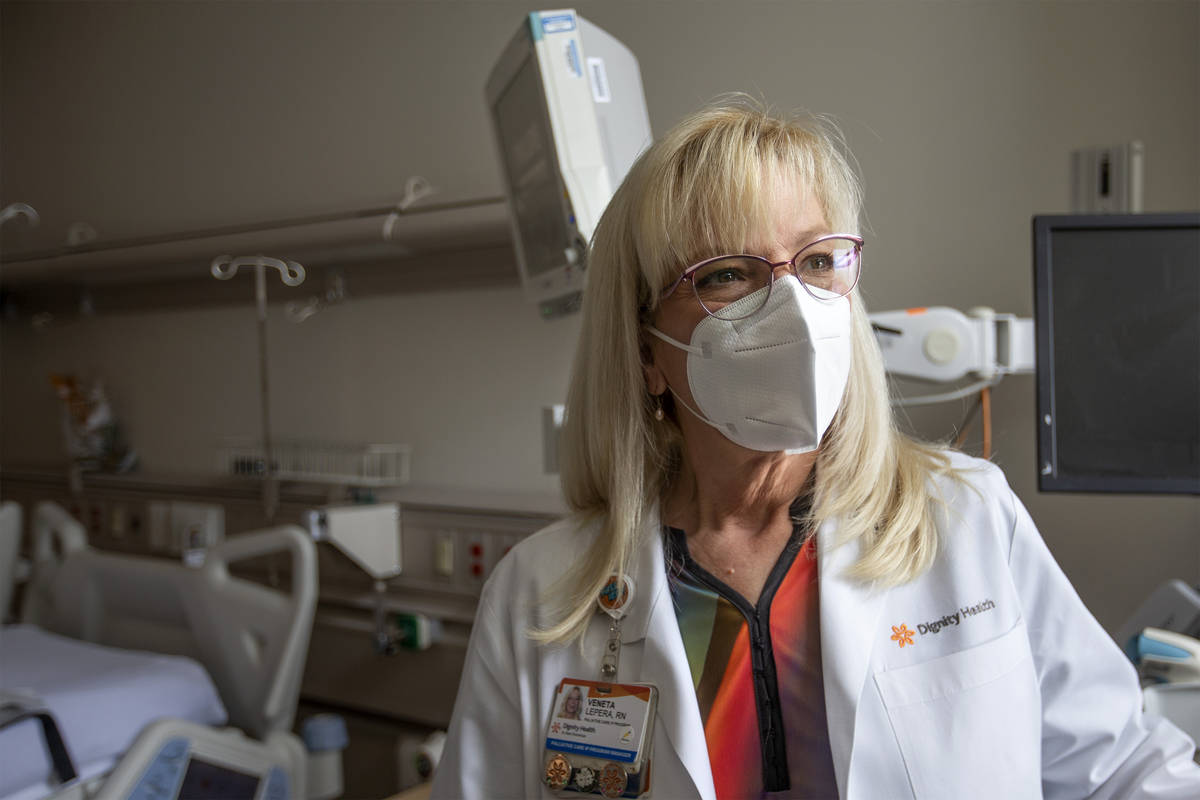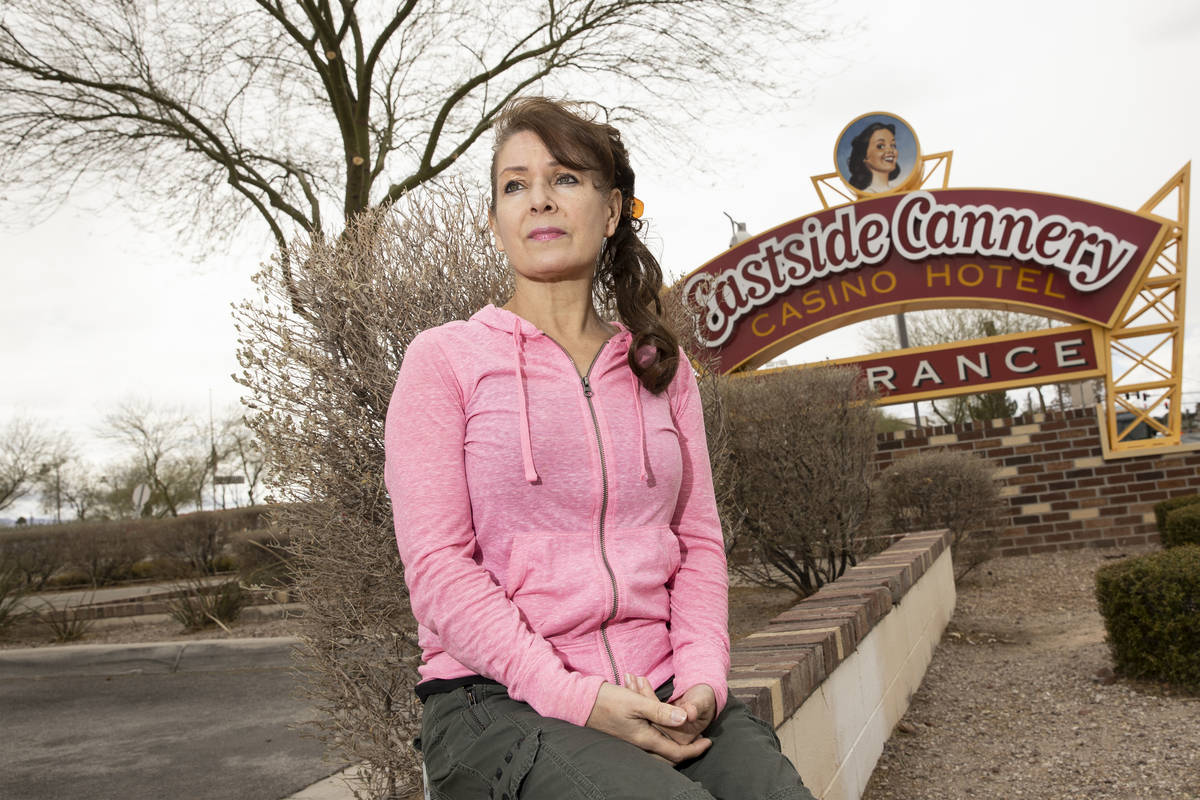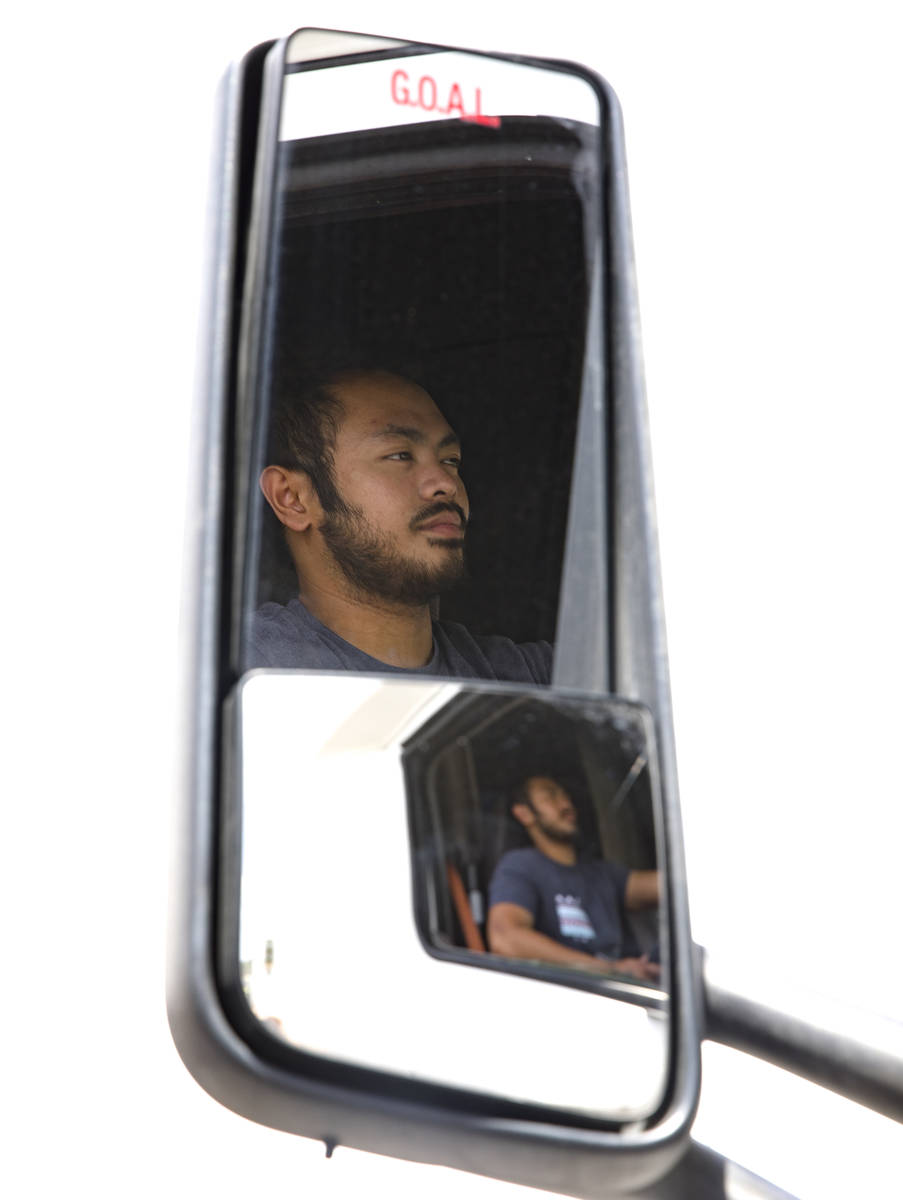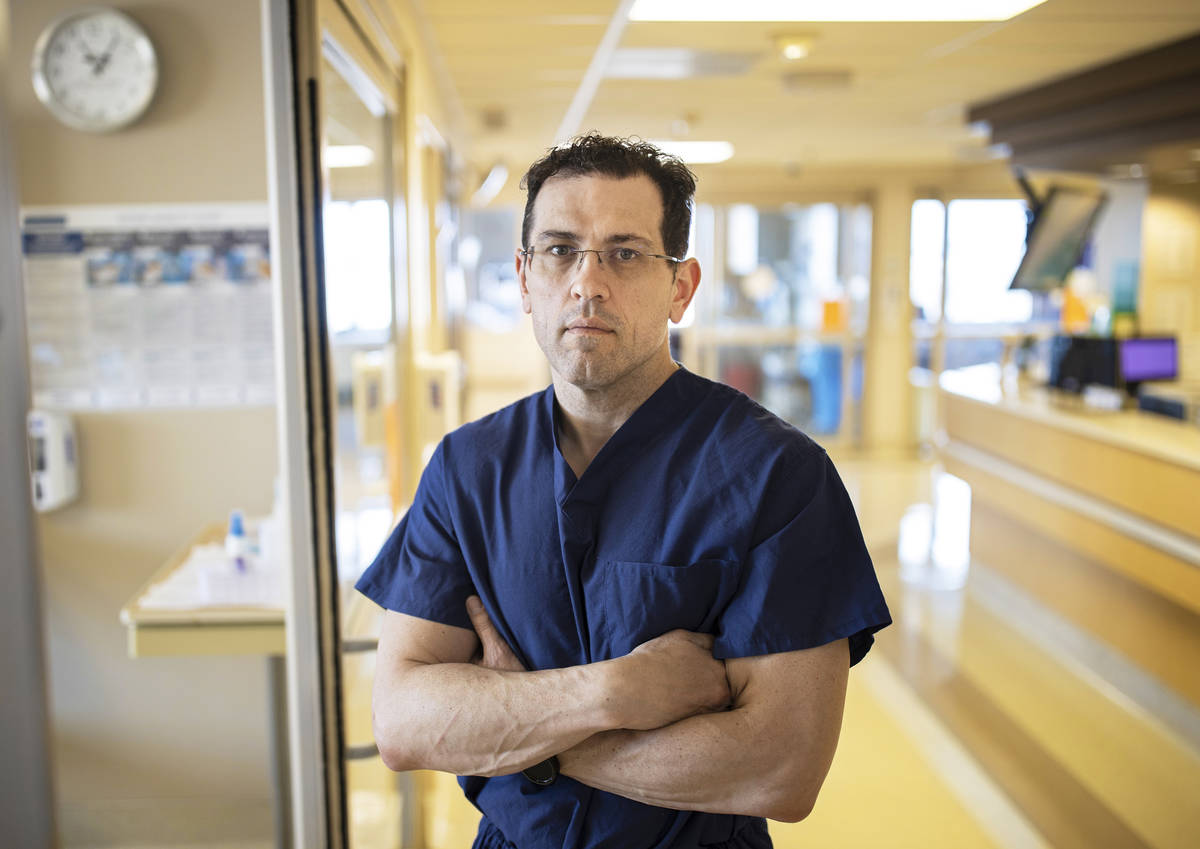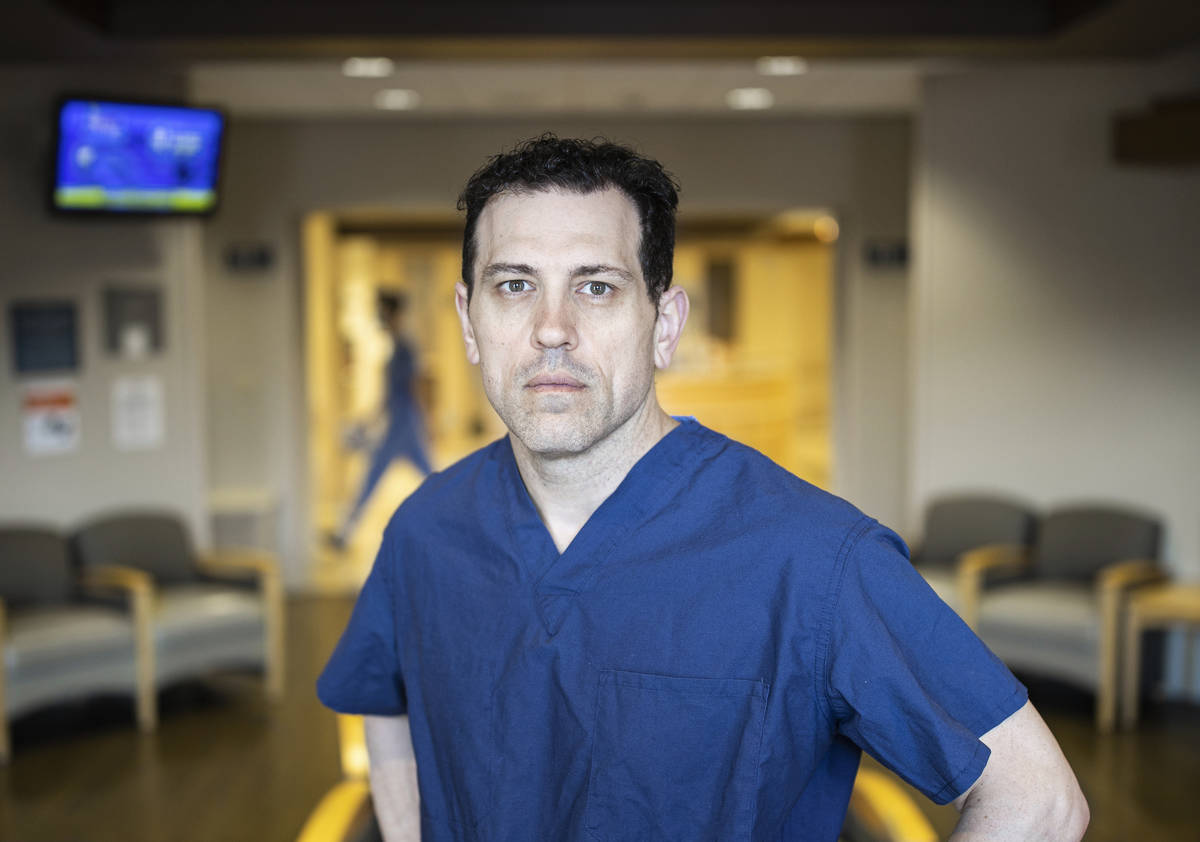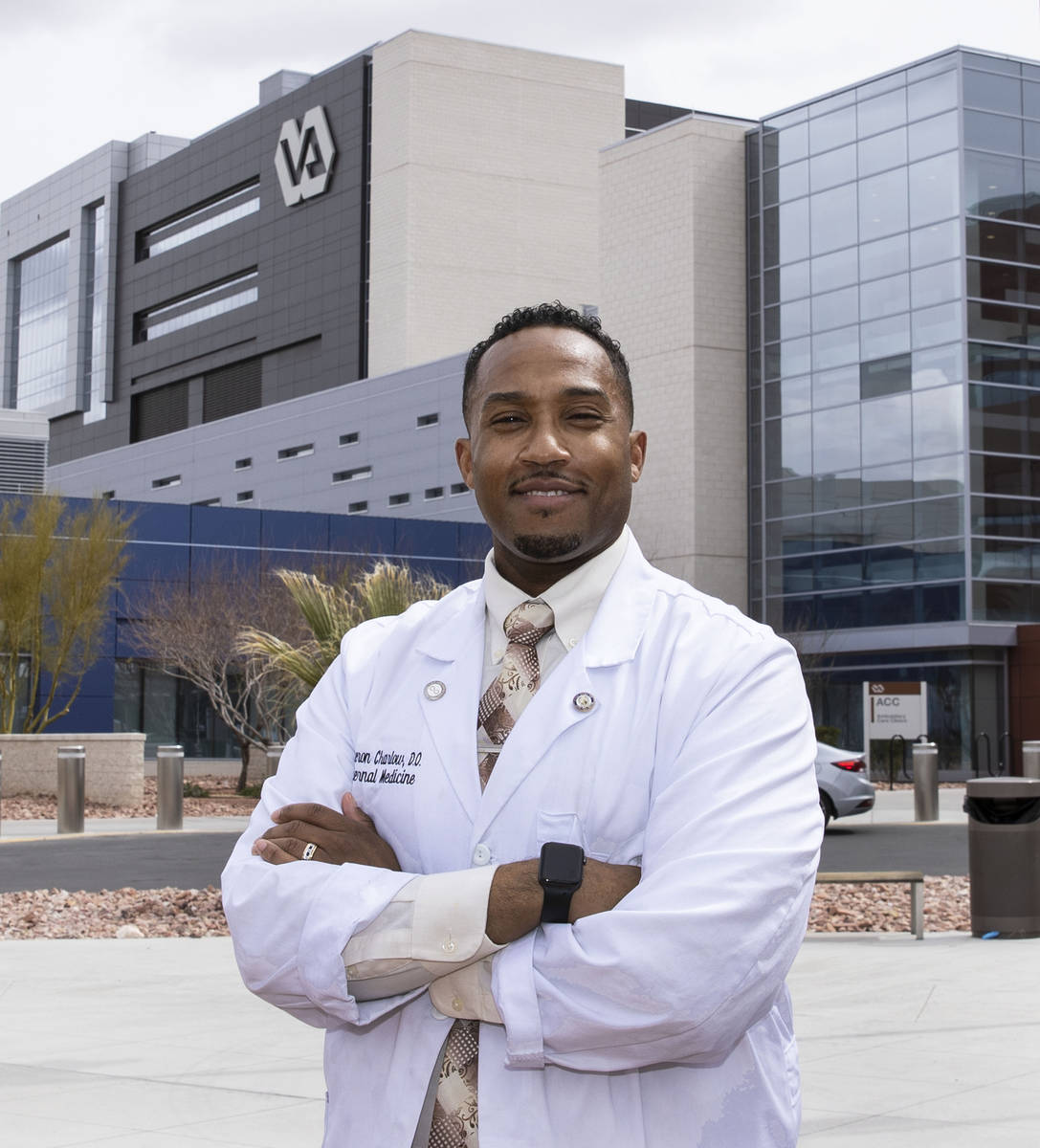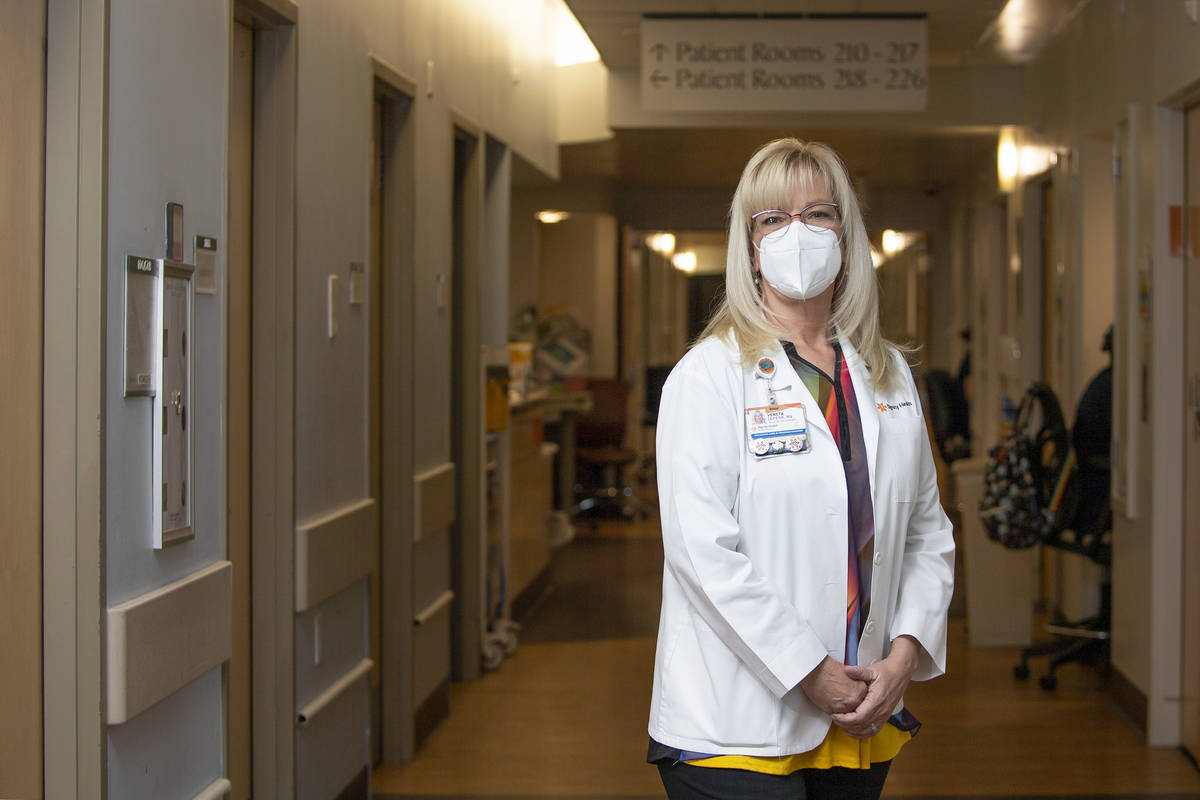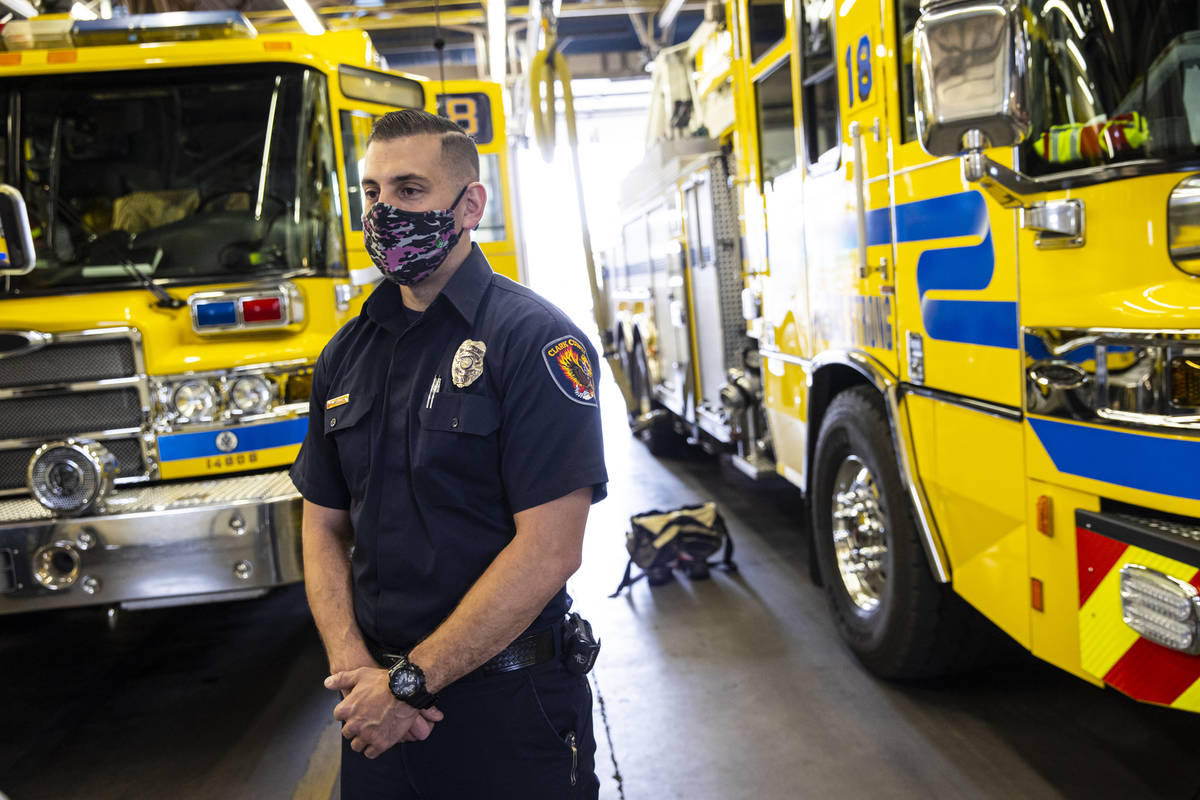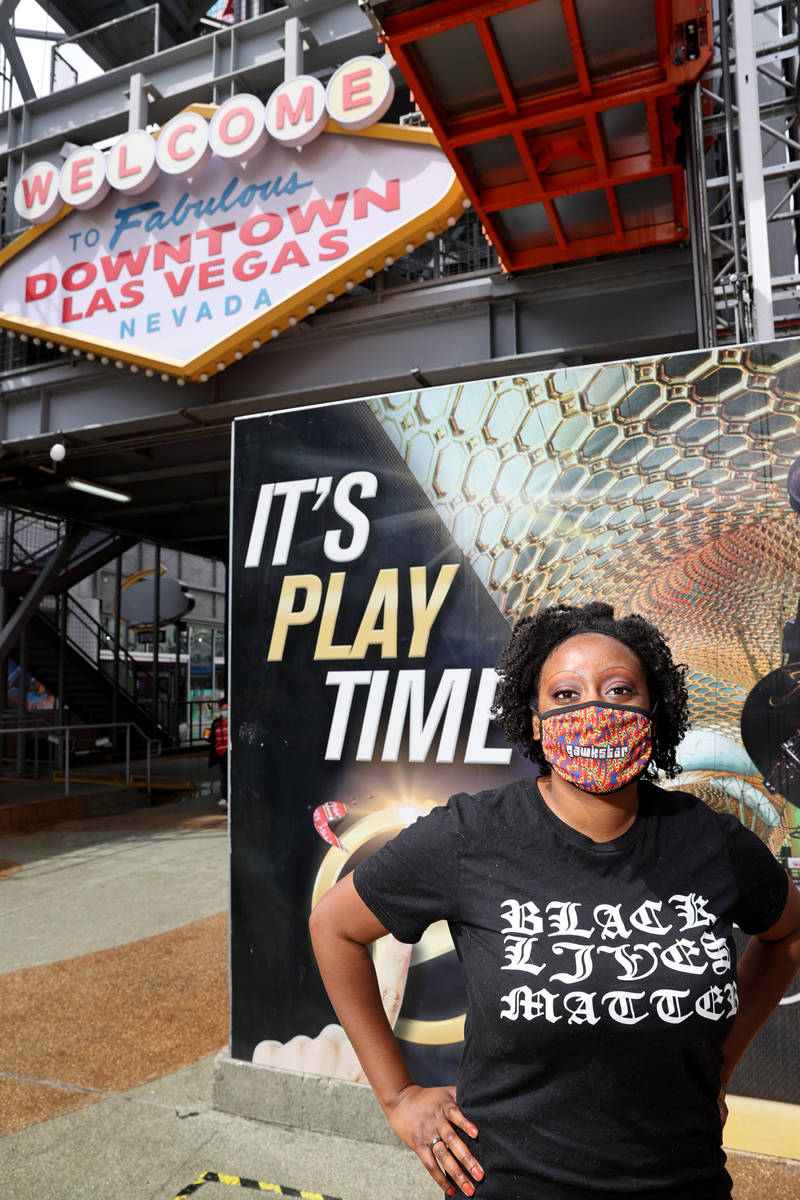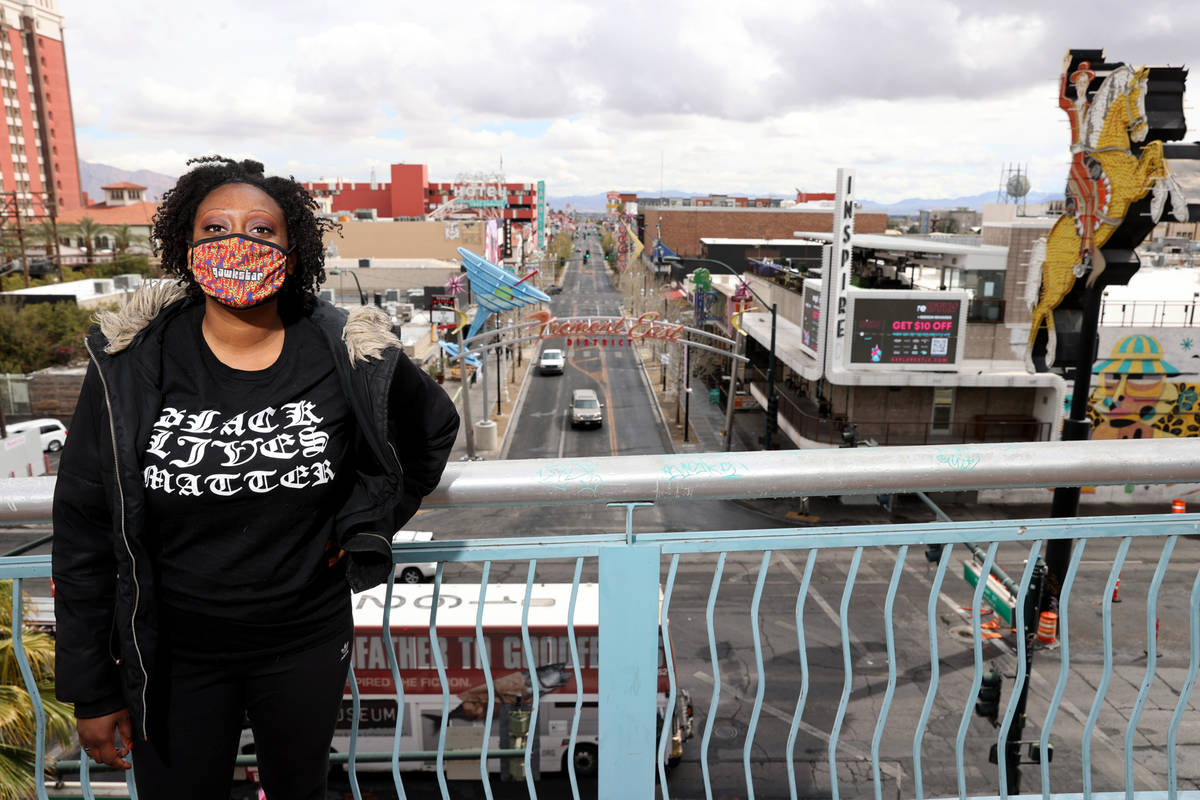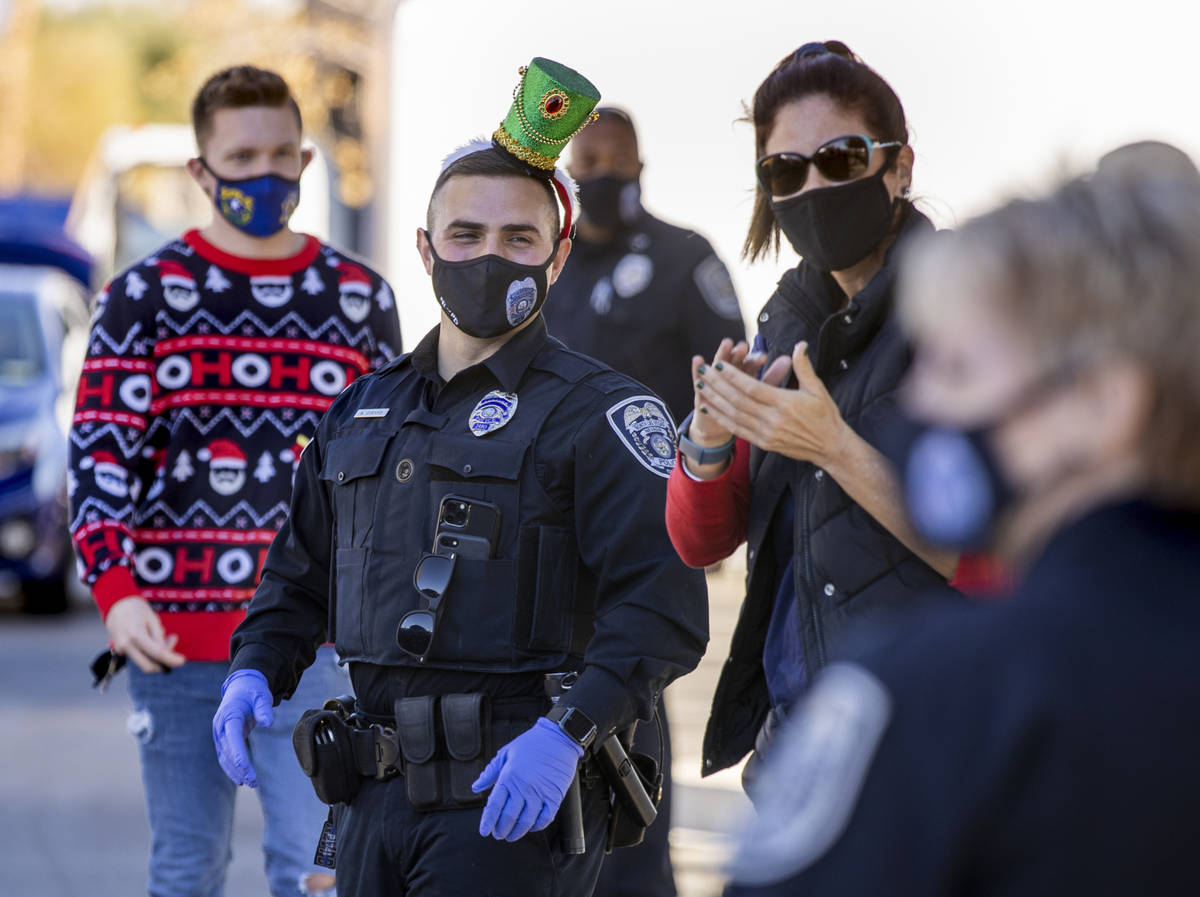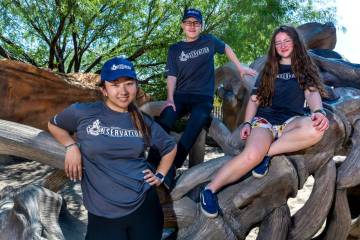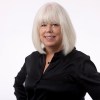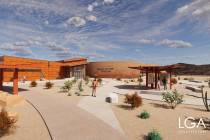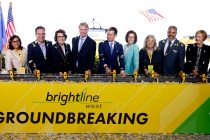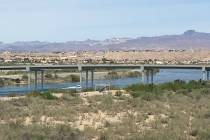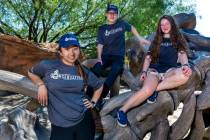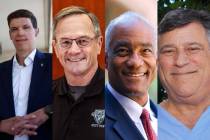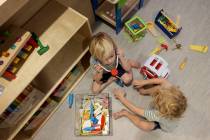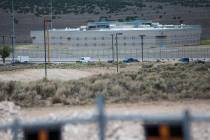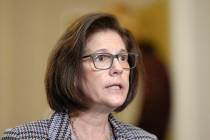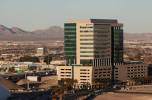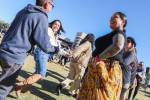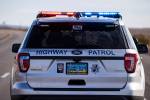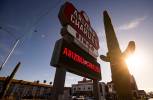From crushing loss to greater resiliency: 9 stories of a COVID year
Few have gotten through the first year of the COVID-19 pandemic unscathed.
We have faced loss. For some, it has been the crushing loss of a loved one to the virus. For others it was the loss of a job, a casualty of the economic havoc wrought by the disease.
And most of us have missed the things that make life most worth living, such as time spent with friends and family.
The challenges have been magnified for medical personnel, first-responders and other workers thrust onto the front lines of the pandemic, such as grocery clerks and casino workers.
The Review-Journal interviewed nine of these workers last week and found that, despite the hardships they endured, they spoke of developing greater resilience during their year of living dangerously.
Here are their stories:
Dr. Christopher Voscopoulos, ICU doctor
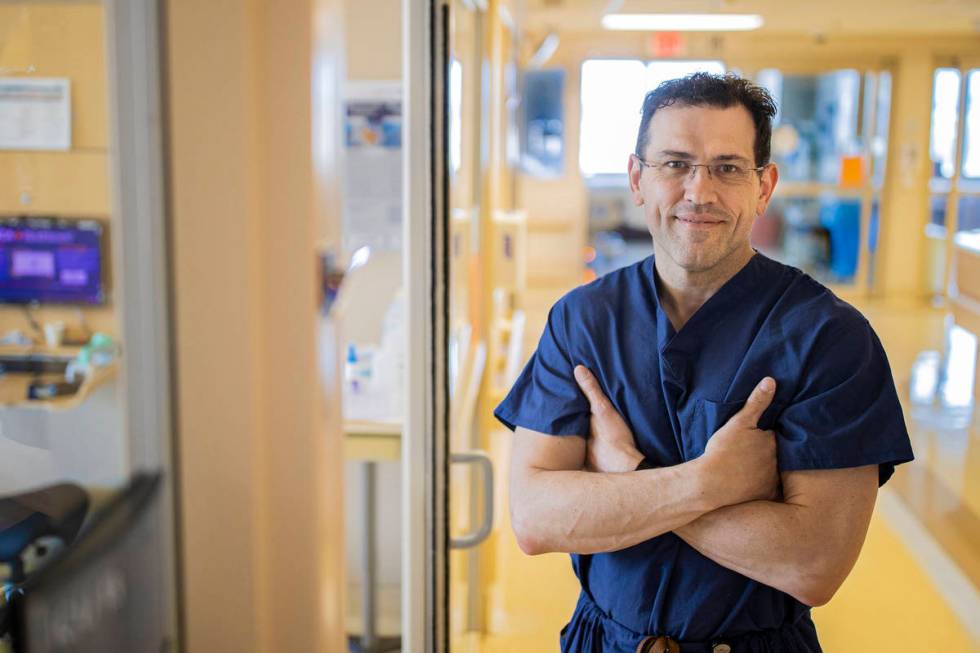
The early days of treating COVID-19 were the worst, recalls Voscopoulos, medical director of the intensive care unit at Southern Hills Hospital in Las Vegas. Despite receiving the best known treatments for pneumonia, patients were dying.
In that time of great uncertainty, one thing was clear: New treatments would need to be found. He saw a steep learning curve ahead, where “every day it took me to learn would mean that possibly another patient might not make it.”
But soon Voscopoulos, 44, started to see that certain techniques helped patients, some as simple as positioning them on their stomachs instead of their backs, a technique called “proning.”
“You can imagine just the sense of relief amongst the staff, to see that we had found a treatment that was successful, and then to see patients such as Alfred recover and go home,” he said, referencing a patient who was near death before the disease reversed its course. His discharge in April was filmed by the staff, who wildly applauded as he was wheeled out of the hospital.
“We wanted to share that not just within the hospital but … with the nation and the world, and let people know that we are not helpless here,” Voscopoulos said. “There are things that we can immediately learn to do. And let’s build upon them.”
The message to staff became that “it was OK to be fearful, but it was not OK to think that that fear was going to conquer us.”
Despite the grueling pace of work as the virus spread throughout Nevada, Voscopoulos said he felt invigorated. “I felt fortunate to be in the position that I was, and I actually gained energy through the whole thing, through the gratitude of being able to play the part that I did,” he said.
Voscopoulos joined the hospital staff in December 2019, just three months before the first case of coronavirus was detected in Las Vegas. When the pandemic struck, his family delayed their move from New Hampshire before finally relocating in December. He has two young daughters, one born during the pandemic.
He believes that the end of the crisis may be in sight. For him, it will be over when the national outlook is one of “no matter what happens with the future of COVID, we have the confidence that we will be able to adapt and to ultimately win.”
He sees signs of this in the growing optimism of patients hospitalized with COVID-19. “They don’t think this is going to get the better of them,” he said.
Despite his upbeat outlook, Voscopoulos said his memories of the past year are sober ones:
“I’ll never forget the ones we couldn’t save.”
— Mary Hynes
Sheila Winn, funeral director
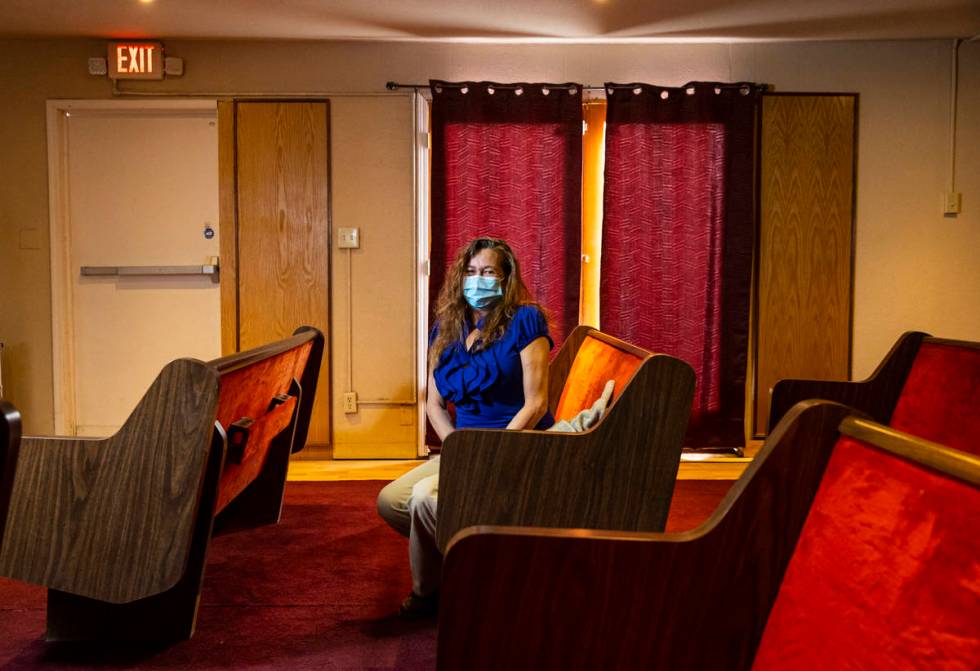
Winn, the director of Clark County Funeral Services, a family-owned mortuary in the Historic Westside, said she initially was drawn to this line of work after the sudden loss of both parents.
Over the years, not once did she ever question whether she was cut out for an industry surrounded by death.
Until the COVID-19 pandemic.
“It was just too ugly,” she said of the disease’s devastation. “There were so many bad moments, but probably the worst was when a young man and lady came in for help. The young man was 24 and the young lady was 19. They were Hispanic. The disease has really hit that community hard.”
Winn, 53, sighed.
“Their mother went into the hospital for a routine surgery and contracted COVID. And suddenly they were without a mother. Their father had passed away some years ago. I think that was my worst moment, looking at these young people, trying to tell them that it’s going to be OK.”
Worst of all, she had to comfort them from 6 feet away. She couldn’t hug them. Or hold their hands.
“For me, that was probably one of the hardest things to adjust to, because families would look at me with so much hurt in their eyes, and they would ask me, ‘Can I just give you a hug?’”
It felt so wrong, she said, to have to say no. Instead, she would ask, “How about a fist bump, or an air hug?”
“I never looked at myself as essential, and then, suddenly, in the pandemic, my job, this industry, was declared essential,” she added. “I felt as though more was expected of me with the designation. I expected more of me. And I felt that the families expected more, that they thought I was more knowledgeable than most about the pandemic. But, quite frankly, I was in the same boat as them. I had no idea what was going on.”
— Rio Lacanlale
Andrew Molitor, Clark County firefighter
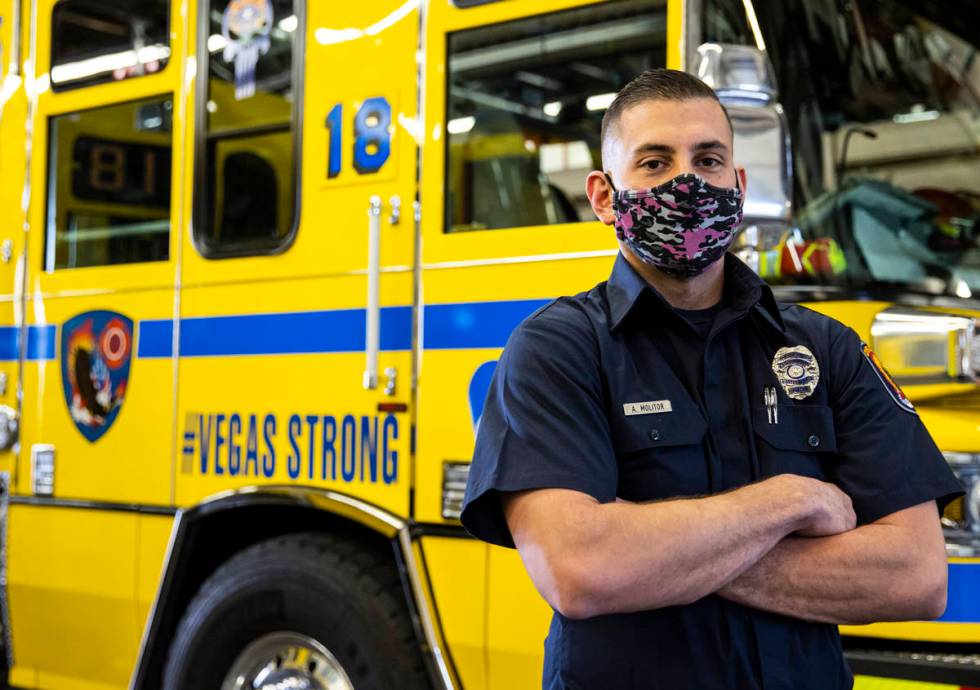
Molitor and his fellow Clark County firefighters at Station 18 on East Flamingo Road get up close and personal with strangers every single day.
Whether it was responding to a medical call, fire or a traffic accident, every call over the past year brought with it the potential for COVID-19 exposure. That, in turn, changed the way firefighters prepared for their forays out of the station.
“Things got a little more interesting,” Molitor said of the onset of the pandemic in Nevada, which reported its first case on March 5, 2020. “We became super precautious, the mask wearing, the full gowns, making sure we are social distancing.”
On calls, firefighters began asking patients who were able to step outside their homes and into the fresh air.
“Have them come out, stand 6 feet out, ask a couple of questions,” Molitor said. “‘Do they have a temperature? Have they been exposed to anyone with COVID? Have they been diagnosed with COVID?’ Then we will go from there with assessing the situation.”
Molitor and his fellow firefighters would “gown up” if a patient said they had COVID or had recently been exposed to a person with the virus.
“Full body gowns, covers. You wear that with our N-95 (masks) and glasses as well as gloves,” he said. “We do that on almost every call that involves COVID. … You are careful of what you are touching. You are trying to maintain that distance but also on EMS calls you still have to touch the patient. You have to get vitals.”
Molitor, despite all of the encounters with the public, hasn’t gotten COVID-19 and he doesn’t know anyone at the fire station who has. He attributes this to extensive safety precautions not just on calls but in the firehouse itself.
“We just try to do our best,” he said. “We always decontaminate. We wash ourselves. We wash the equipment, we take care of it and always wiping it down with disinfectant. It’s increased the stress but it is still manageable. You just adapt and overcome. You have a good crew. You work with them. This is all family.”
— Glenn Puit
Shauna McQueen, casino worker
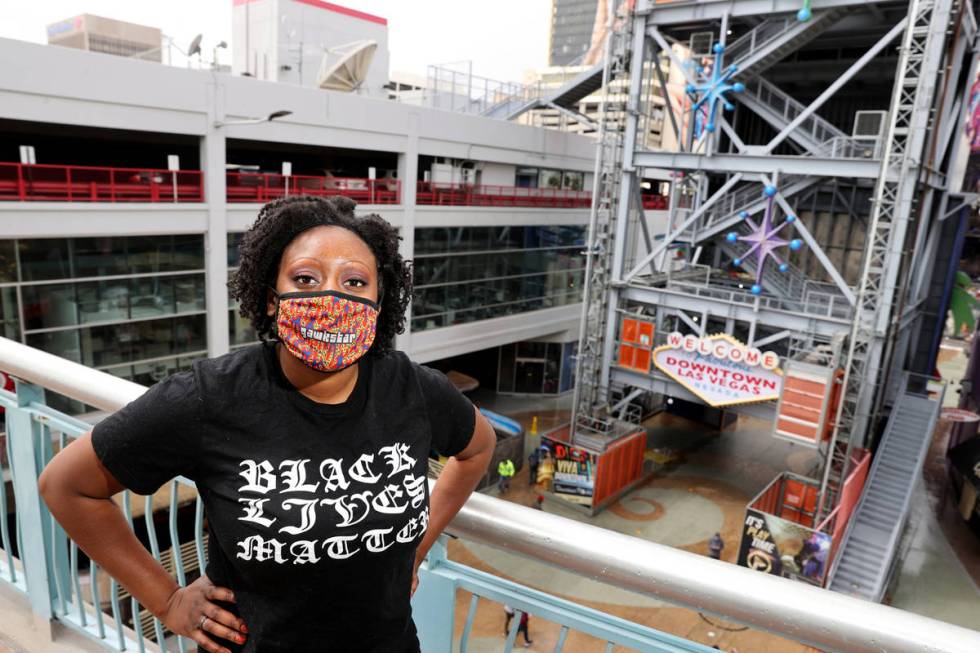
McQueen had already had her hours cut at the Golden Nugget when she learned that casinos across the state would be closing.
“COVID hit me out of the blue. … All of a sudden, COVID was there. The entire world had just stopped,” she recalled. “Everyone was kind of scrambling, trying to find out what we do for money since everything’s going to be closed.”
On March 17, the day before the shutdown, McQueen went to Fremont Street with friends to watch their last few hours of operations. The experience was surreal; the music that typically blasts throughout the visitor hotspot had been turned off, and businesses were boarding up doors and windows.
That’s when she realized: “This is not a joke. It’s not a game. We are seriously in a pandemic.”
Luckily, McQueen, 21, was able to get unemployment benefits within weeks, while friends had to wait months or still haven’t received payments.
The months ahead were full of short-lived odd jobs: Working at a doughnut shop, a hardware store and a pharmacy. Each only lasted about a month.
“The jobs right now, they are so bad. The wages are so low because everyone’s so desperate (for work),” she said. “It’s a brutal economy right now.”
Some of the jobs required customer interaction, which made McQueen nervous. She visits her 61-year-old dad frequently and was afraid of passing along the virus to him.
“The front-line workers, we’re the ones who get screwed,” she said. “We had to enforce the masks, we had to clean everything, we had to tell people to put their masks on and they were sometimes like, ‘No, I didn’t want to put on a mask.’ It was stressful and so abusive.”
But things are starting to turn around.
In early March, McQueen learned that she could be on-call for shifts at the Golden Nugget. She recently tested negative for a COVID-19 test required for the job and expects to return to work soon.
“The shifts vary, but I don’t care. I made good money at the Golden Nugget. I miss talking to people, I miss coworkers,” she said. “I want something familiar back into my life, something I understand and I’m good at.”
McQueen said she’s become more comfortable with the idea of working in a casino, with case numbers dropping, thousands getting vaccinated each day and more people taking safety mandates seriously.
“At this point, I do feel very safe,” she said. “Everything feels so normal. I go outside, everybody has a mask. … I don’t really worry about catching COVID at this point.”
Looking back, McQueen said the past 12 months have been a roller coaster of a year. Despite the hardships, she said she’s grateful she was able to use the time to self-reflect.
“I feel more confident, I feel stronger. I just feel more prepared to deal with stuff after getting through something so chaotic,” she said. “It’s nice to look back and be like, ‘Wow. I survived all of that, and I’m still here in one piece.’”
— Bailey Schulz
Dr. Cameron Charlow, medical resident
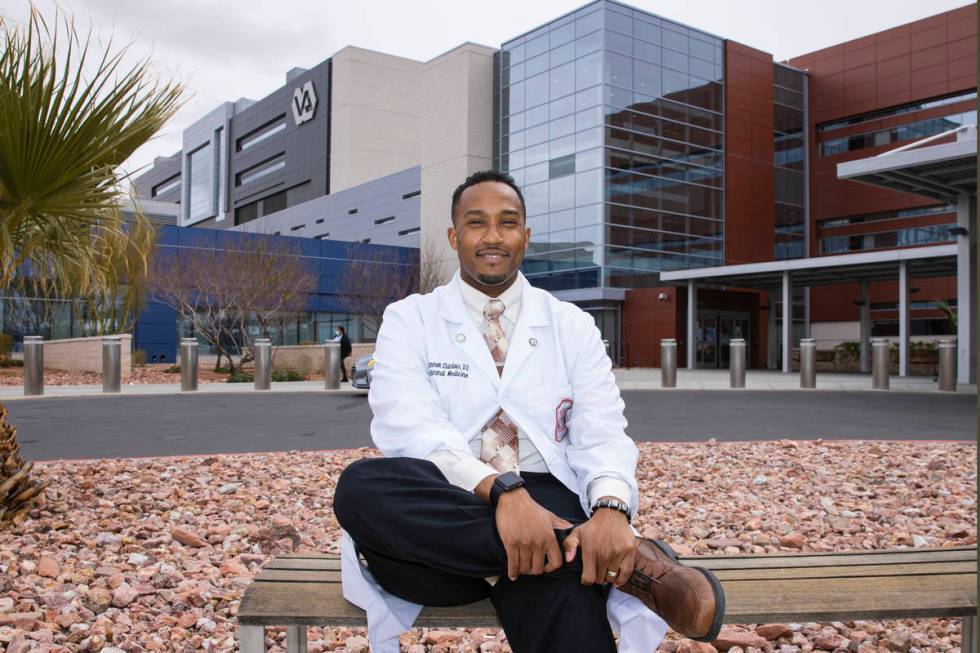
Charlow was doing an audition rotation for the graduate medical education program at UNLV’s School of Medicine at the time of the mass shooting in Las Vegas on Oct. 1, 2017.
He saw how the medical residents and hospital staff came together and supported one another. The community also lent its support, with hotel-casinos bringing meals to University Medical Center where the residents were working.
“I thought it was a very special moment,” said Charlow, 31. “I was like, ‘Wow, this is a resilient community that cares about one another.’”
That experience helped him decide that Las Vegas was where he wanted to continue his medical training. Now a third-year resident, he experienced this kind of support again with the onset of the pandemic.
As the residents worked 80 hours a week to handle the influx of COVID-19 patients, they picked up shifts for one another or covered patients when somebody needed a break.
“The best thing that we had was each other to deal with it because we’re all kind of going through it,” said Charlow, who currently works at both UMC and the VA hospital in North Las Vegas.
The stress didn’t stop at the hospital door. Charlow worried about bringing the virus home to his wife and their baby, or to his wife’s parents.
“I’m worried about whether I’m going to expose them unknowingly to the disease. And so that became a thought in my mind, where I had to be proactive about how I went about my daily life.”
Being proactive meant showering and changing clothes before leaving the hospital, and then changing clothes again before entering the house. It meant sleeping apart from his wife.
“Dealing with the pandemic, you can’t ever say that you can see that coming,” he said. “But the idea of exploring medicine and treating patients that need help, and being there for people in a tough time, yeah, I 100 percent signed on for that.”
“We’ll take a look back and watch how this has changed medicine,” he continued. “It will all come down to this year, and so it’s a special time to be a part of medicine.”
— Mary Hynes
Kim Santiago, truck driver
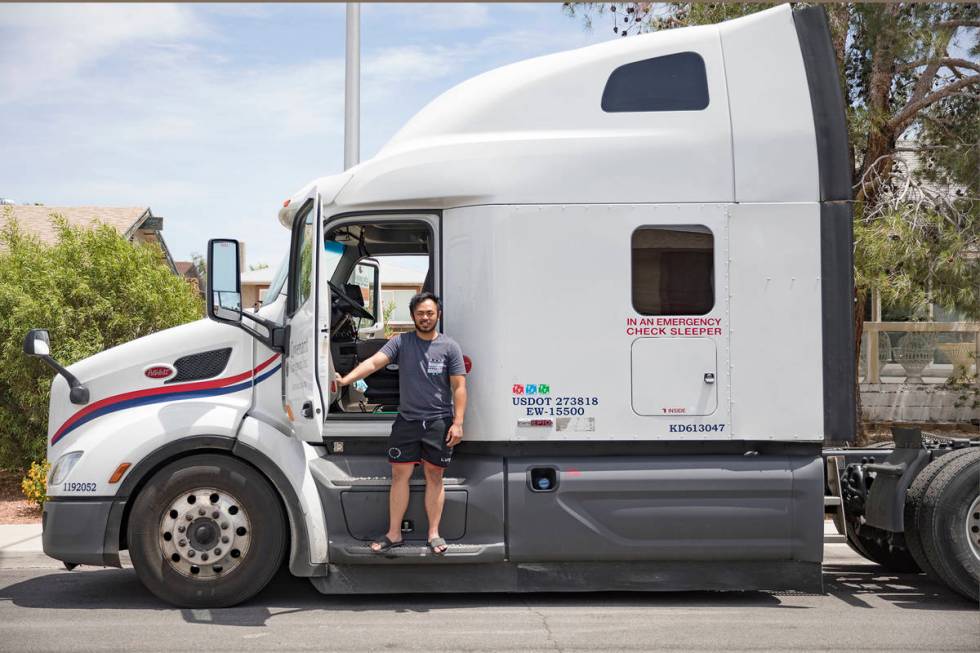
When the novel coronavirus triggered shutdowns across the country, Santiago worked quietly behind the scenes to keep America’s shelves stocked.
Santiago, 28, began his career as a truck driver in 2019, shortly before COVID-19 had crept into our lives. As an “over-the-road” driver, Santiago transports goods over long distances and is typically on the road for weeks — or sometimes even months — at a time.
“The worst thing for me looking back was not being able to see my family during a really scary time,” said Santiago, who lives with his parents in southeast Las Vegas. “Just having to focus on driving, getting my deliveries completed while worrying about my mom, that was hard. She’s a nurse. She was actually treating a whole bunch of COVID patients at that time, so I was worried about her, worried that maybe she was gonna catch it and I wouldn’t be there if she needed me.”
Santiago spent the height of last year’s shutdowns living in the cab of his Peterbilt truck. Each day, for three months, he spent upwards of 14 hours behind the wheel, traveling thousands of miles with his driving partner to complete essential deliveries while most of the country sheltered in place.
“Everywhere I went, people had masks on. It was weird, at the time, you know, because that’s never been something we do here in the States,” Santiago said. “And the streets, the highways, they were so clear. It was so much easier trying to drive this huge truck. You had all the space in the world.”
Santiago was especially grateful for the open highways during a delivery last March to a Walmart in Texas.
Packed away in the trailer of his truck was a highly flammable load of 40,000 pounds of Purell hand sanitizer. A year later, the product continues to be high in demand.
“That was so crazy,” he said. “It showed me that we got to be more prepared. Everybody was hoarding stuff and panicking. No one was really prepared for this pandemic. I think that’s the one lesson we can take away from this. We need to be prepared for the next disaster.”
— Rio Lacanlale
Alexander Cuevas, police officer
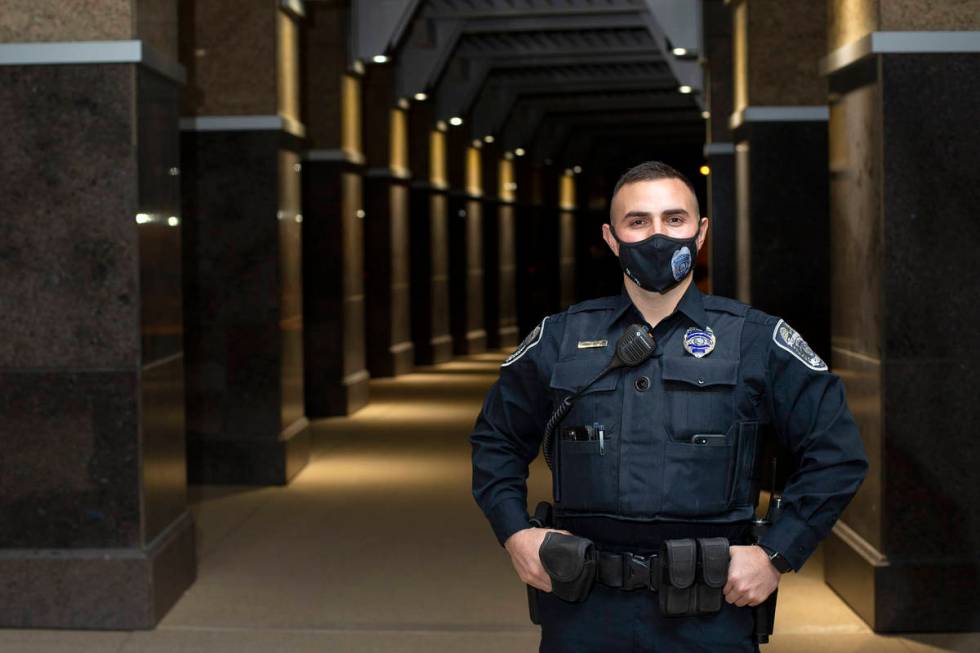
Cuevas, a spokesman for the North Las Vegas Police Department, said the department has been meticulous about implementing safety measures since the COVID-19 pandemic started.
“Precautions have been masks, gloves, goggles, cleaning wipes, and making sure we stay 6 feet apart from somebody or we don’t stay in somebody’s house,” he said. “We wanted to make sure everything follows Centers for Disease Control guidelines.”
Despite such precautions, Cuevas was the first North Las Vegas officer diagnosed with COVID at the end of March.
“I started feeling all these symptoms, and I started thinking to myself, ‘There is no way I have this. There is no way,’” Cuevas said. “Then I called the department. We went through all the proper precautions, all the proper channels. … They got me tested, and lo and behold I was positive.’”
What followed was a frightening experience, Cuevas said.
“I had body-aches. I had a high fever. It took me by surprise,” he said. “I didn’t want to get out of bed. I had light sensitivity and a headache. It felt like I couldn’t breathe … trying to take a deep breath and it felt like there was a sponge in my lungs.”
Cuevas was very sick for a week but eventually made a full recovery.
He suspects he got the virus through his dealings with the public, though he has no way of knowing. A few other officers have also had it over the past year, he said.
“It was especially scary for my family,” he said. “They had no idea what was going on and it was so early in this pandemic no one truly knew what was going on. There was a lot of misinformation out there.”
Cuevas said getting the disease made it clear to him that it should be taken seriously by all.
“It’s real and it can affect you,” he said.
— Glenn Puit
Sharon Beza, cocktail waitress/grocery clerk
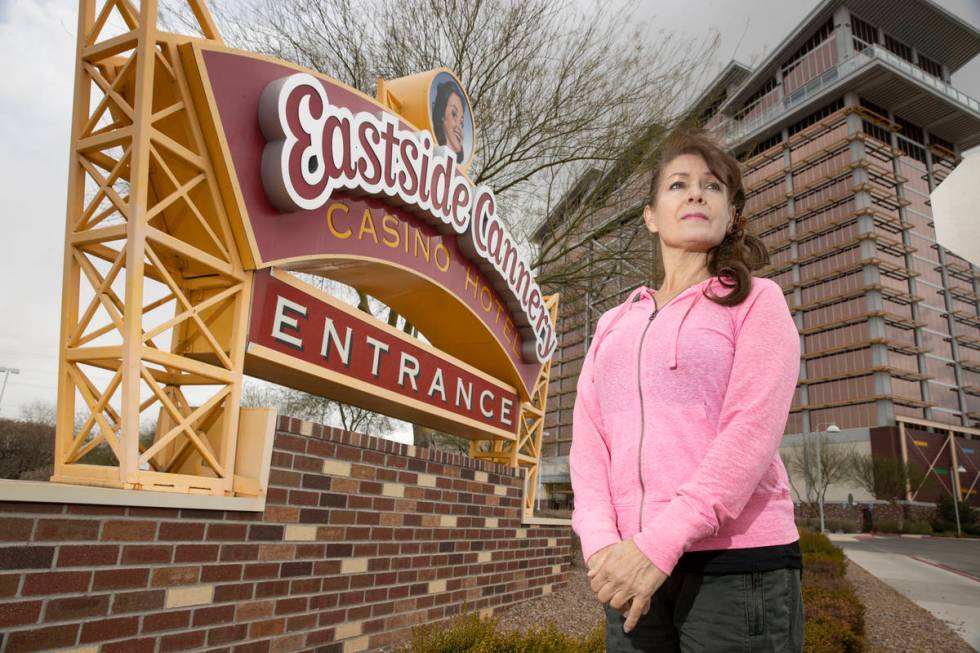
Beza was working at Eastside Cannery’s cocktail station when she first learned the casino would close for 30 days.
Just like that, Beza, 59, was without the job she’d had for nearly 37 years.
“It was a shock,” she said. “I started getting scared for my kids. … I don’t want them to get sick. That’s what was going through my head.”
The 30-day shutdown turned into a six weeks. Then, 11 weeks. Nevada casinos were finally allowed to reopen on June 4, but Boyd Gaming Corp. decided to keep the Eastside Cannery closed.
The property has yet to reopen, and Beza was permanently let go in July.
She now works part time as a cashier at an Albertsons grocery store.
She said she’s extremely grateful for the job, especially since she knows of other casino workers who are still searching for work. Beza said she likes the job and has been working hard. Earlier this year, she was named employee of the month.
“They treat me really good. Everybody’s really nice there,” she said.
She added that contracting the virus at Albertsons hasn’t been a concern, since she believes she had gotten sick with COVID-19 last year and has built up immunity. She’s just glad to be back working a job that allows her to interact with people.
There are some concerns about making enough money to help her son, who is set to graduate high school soon. Still, she tries to be optimistic, and leans on her family and faith in God.
“My mindset is still good. I think I’m OK. It’s not a lot of money, but I’m surviving,” she said. “I’ve got a lot on my mind, but I’m positive.”
— Bailey Schulz
Veneta Lepera, palliative care nurse
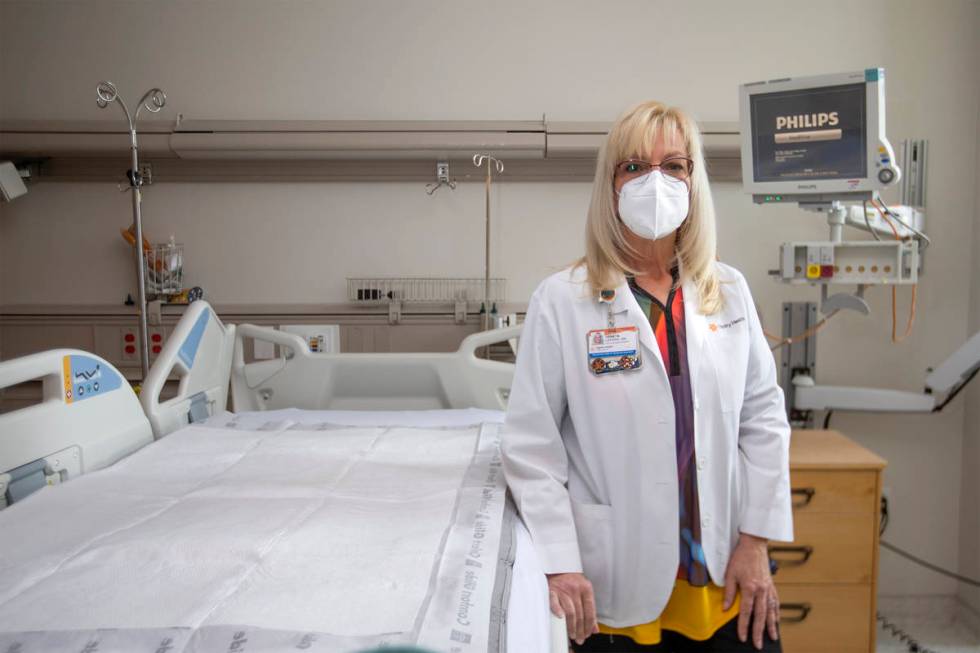
Practitioners of palliative care are trained to look into their patients’ eyes to better understand how they are feeling.
Never has this been more important than during a pandemic where faces were covered except for the eyes.
“While everyone is wearing masks, covering their mouth and nose, the focus goes to their eyes. You can see people’s hearts through their eyes,” said Lepera, 55, a palliative care nurse manager for St. Rose Dominican hospitals in Southern Nevada. Palliative care focuses on providing relief from the symptoms and stress of serious illness.
Lepera and her team also saw that their colleagues needed help, in coping with the misery and mounting death toll from the coronavirus.
“I found our team not only helping the patients and families cope with their grief and death and all the fear and sorrow that brings, but we’ve found ourselves helping in the ICU — nurses, the doctors, the respiratory therapists. There for a little bit, it was one (death) right after another after another, and as resilient as health-care workers are, it’s so painful.”
The team would focus its attention on those having a hard moment, who “just needed to know they weren’t alone, we’re all in this together. And that made us feel like we were doing good work of a much broader scope,” she said.
Part of the work her team did with staff was a “reframing of hope,” a reminder “even though they may have lost the patient in room 201, the patient in room 203 is going home … and breathe deep and keep going and we’ll get through this.”
Staff also needed to come up with new ways to provide comfort to the family members of critically ill patients who, because of visitation restrictions, could not be at their bedside.
“We were one of the first hospitals to bust out the tablets and do video conversations with families with their loved ones,” she said.
“At critical end of life, their loved ones weren’t speaking to them, but they could see they weren’t alone, there was another caring person there touching mom’s hand. They could see they weren’t struggling or in pain, it was a comfortable peaceful exit. … And I think that helped.”
Lepera reflected, “A year later, it’s kind of like you look back and you’re like ‘Wow, did we really do all that?’”
Yes, they really did.
— Mary Hynes



